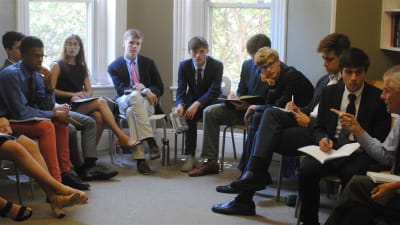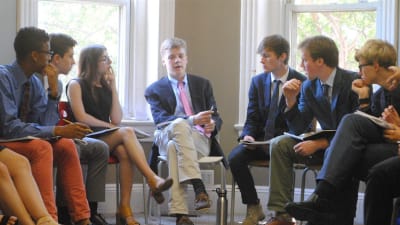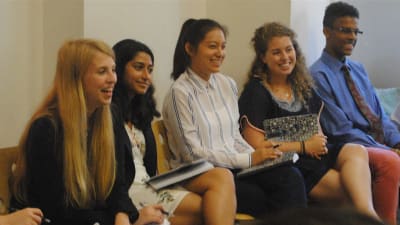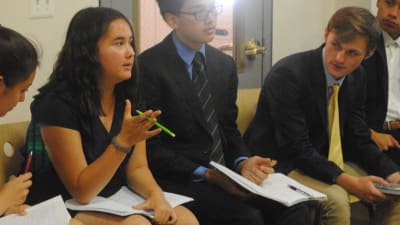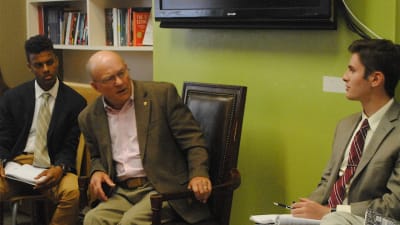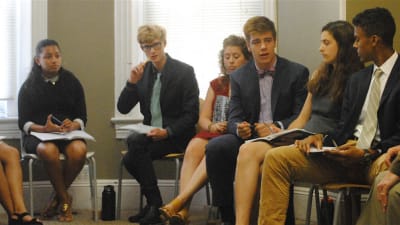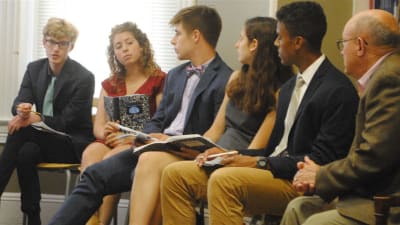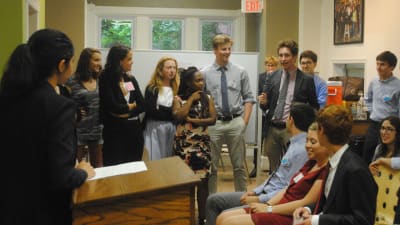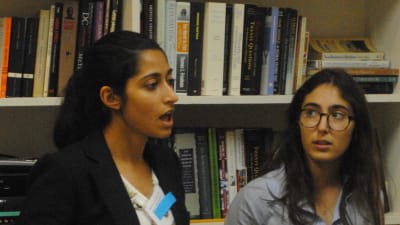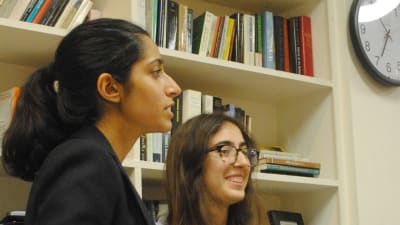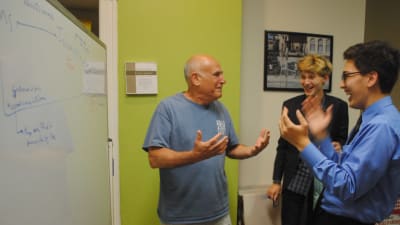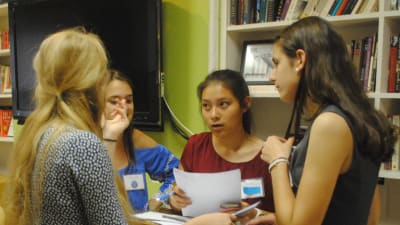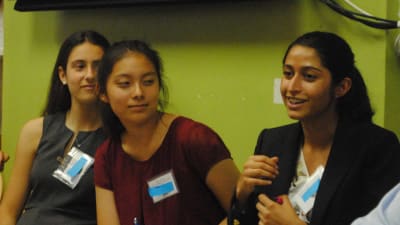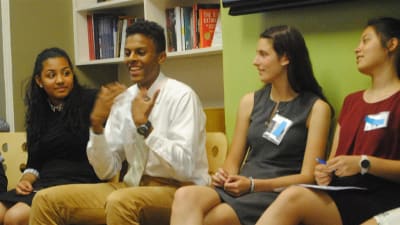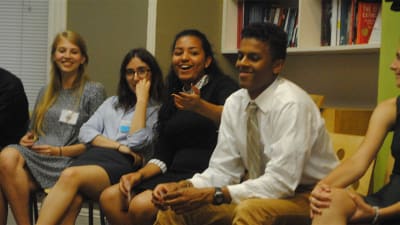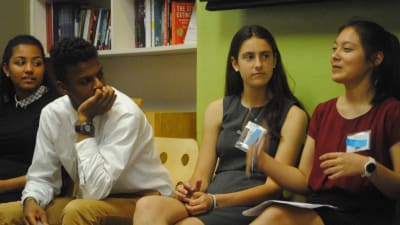Fmr. FBI Senior Intelligence Adviser; Colin Powell Chief of Staff visit SEGL for Crisis Management Week
In these times, information and choices come at us like water from a fire hose: fast and hard. If we wait to set our ethical compasses until the hose points our way it will be too late. We must decide on our values before a crisis hits.
It is with this principle in mind that each semester we challenge students with a four-hour crisis simulation, in which each plays a key role in the Executive Branch. Aided by visits from key guest experts who have faced countless crises themselves, they confront together a host of problems ripped straight from the headlines.
To lay the groundwork for the simulation, we start with a basic introduction to international relations theory: first, an overview of social contract philosophy (Hobbes, Locke, and Rousseau), and second, an overview of realism, liberalism, and other key IR theories. The students asked themselves questions like “why do governments form in the first place, and what does that have to do with how governments ought to interact together?” “what is the proper role (if any) of the United Nations?” and “is it right for a country to risk its own citizens’ lives in order to promote human rights?” Several case studies from earlier this summer (perhaps most notably our Rwanda case study) echoed through the conversation.
Then we welcomed two guest experts who played key roles in several memorable crises.
First, Phillip Mudd, the former Senior Intelligence Adviser at the FBI, shared stories from his decades in public service as well as advice for leading a purposeful life. Among other career highlights, Mudd also served as the first Deputy Director of the FBI’s National Security Branch, the Deputy Director of the National Counterterrorism Center, and a member of the small diplomatic team that helped create a new government in Afghanistan after the Taliban was ousted. He is now a regular on CNN (including an appearance that students watched that afternoon).
Second, Col. Lawrence Wilkerson, who served as Colin Powell’s Chief of Staff while Powell was Secretary of State. Wilkerson was responsible for the team that crafted Powell’s famous (and now widely discredited) speech to the UN Security Council advocating for war in Iraq. Now a noted critic of U.S. foreign policy, he is a regular commentator on cable news.
Both speakers were charismatic, and led students through complicated decision making simulations that provoked deep thought, critical thinking, and important reflection. The conversations that followed were compelling and raised complicated questions for the students. Is it OK, for example, to ignore your personal ethical concerns in service to a bigger cause you believe is just? Is it more valuable to work to prevent crises or to solve them when they inevitably arise? Many students have been particularly interested in the question of torture, which came up several times during the week.
A side note: Sometimes it turns out that two of our guest speakers have an unexpected connection. For example, two years ago at Homecoming our two panelists, Josh Bolten and Mike McCurry, were college classmates. And last week, we learned that Mudd had worked with Wilkerson to prepare Powell’s now-infamous presentation before the United Nations Security Council in the lead-up to the war in Iraq. (In 2004 Vanity Fair published an account of this episode here.) Wilkerson has criticized Mudd publicly for his actions in that episode (click here and search for his name to read a transcript of these remarks on the Rachel Maddow Show).
And then the students put their crisis management knowledge to work in the crisis simulation. Over the course of the simulation, the President and her (yes, her!) team learned important information about a series of international and domestic issues that required tough decision making under time pressure and also public relations skills.
Our faculty acted as members of the domestic and international community in videoconferences, videos, leaked “intelligence,” and in person (at the height of the action, the President was required to spend ten minutes reading a bedtime story to her child…). We won’t spoil the details for future terms; suffice to say, lives were lost, lives were saved, ethical decisions were bandied about, and the President’s final press conference was hard-fought but successful. For many reasons, it was a fitting culminating exercise for an hard-working group of developing leaders.


